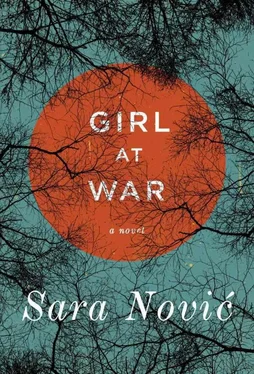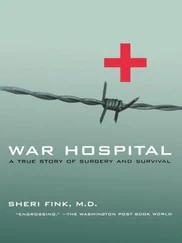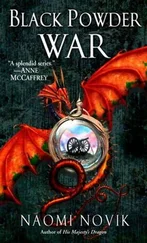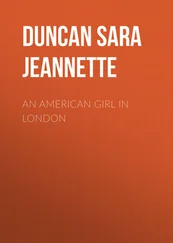“You drive?” he said.
“Yeah. Not stick though.”
Luka got out of the car, and I slid over the center console into the driver’s seat. Driving stick was like a seesaw, Luka explained. About keeping a balance of pressure. “Press that pedal on the left all the way to the floor.”
I pressed the wrong one, and the engine revved wildly.
“Your other left.” The car was so old it had a manual choke, and he reached across me to slide the vented lever up until the motor sounded less like it was being strangled. I looped around the lot for a while without stalling, shifted into first, second, third.
“All right,” he said, gesturing for me to turn out onto the main road. “You’re ready.”
—
“WHAT DO I DO?” I yelled. I had caught a traffic light on a steep incline, and when the light changed and I took my foot from the brake the car began an unfamiliar backward slide. I slammed the pedal back against the floor.
“Just give it a little gas.” Behind me the drivers honked. I pulled my clutch foot up too fast, and the car sputtered, then went quiet. Someone passed us on the shoulder. Luka reached over and turned the car off, then told me to restart it, but I just glowered at him until the light had gone red again.
“Calm down,” he said in an unfazed manner I found infuriating.
“Fuck this.” I wrenched the key in the ignition; the engine howled as I gunned it across the intersection. More honking. I pulled over.
“You were doing fine. You have to learn. I can’t drive the whole trip.”
“That was not fine.”
Luka sighed. “You’re impatient,” he said, which, because it was true, hurt more than a harsher insult. We switched places. “You’re driving once we get out of Zagreb,” he said, and flipped on the radio.
—
On the highway I was calmer. I was driving again, but without stop signs and traffic lights it was easier. We took off our shoes, threw them in the backseat, cranked down the windows, and let the breeze flow through the car. The air was hot, but at least it was moving. The dashboard vibrated with the folk-techno mash-ups that pervaded the country’s airwaves. A mix of traditional Muslim and Mediterranean melodies overlaid with thumping house beats, they’d become the new postwar pop. A far cry from the nationalistic anthems of our childhood, they were what Luka termed a “cultural cease-fire,” an effort to bring the segregated nationalities back into communion with one another.
“I like the new songs,” he said, fiddling with the dial to clear out the static as we passed the last of Zagreb’s suburbs. “It’s genius, really. People in the discotheque, all drunk, rubbing up against each other to music that everyone thinks came from their own heritage.”
Outside of Zagreb things quickly became rural — sheep and chickens and rows of corn along the roadside — and it was hard to tell one farm or cluster from the next. Luka spoke about the end of the war and which friends from elementary school were doing what, and I told him stories about Rahela and American high school and New York City.
I looked at the clock; we’d been driving for a few hours. Bullet-dented road signs showed we were approaching the place where the road split toward Sarajevo. I got nervous and swerved to follow a sign toward Plitvice Lakes National Park. Luka noticed but didn’t say anything. Plitvice was famously beautiful, even outside Croatia, and I’d never been there, so it was an easy enough stop to justify.
At the park I pulled my camera from the trunk and slung its oversize strap across my chest. We talked our way through the front gate without paying. The woman manning the booth said she was just relieved to hear someone speaking Croatian. She could go a whole day without coming across another Croat, she said, spent hours conversing in pantomime and broken English with tourists from Italy and France. The German tourists were better, she said, because she knew a little German.
“Everyone learns German in school now because they were quick to recognize us as a country,” Luka said to me. His sidebar didn’t slow the park attendant down at all — the problem with the Germans was that they were a little rude and all dressed like Boy Scouts, and anyway we should go in if we liked, because it was silly that Croats should have to pay to see their own park.
“Once, when the war was just over, my mother and I went to Germany to visit her sister,” Luka said as we passed through the gate and onto the main trail. “I was fifteen and wearing a Croatian flag T-shirt, police academy issue, and in the Frankfurt airport a man came up to me and asked me if I was Croatian.”
“Never a good sign.”
“I said yes, and he said he’d lived in Germany for a long time but was a Croat, too, and was sorry for all I’d had to go through. He gave us a box of expensive chocolate and walked off.
“That was the only good thing I ever got just for being a Croat. Until now.”
“I guess this was a first for me,” I said. Once on the subway I’d stared too long at a couple speaking Serbian, lingering in a manner that must have betrayed comprehension.
“Govorite srpski?” the boyfriend had said.
“Hrvatski.”
“Oh!” they’d said simultaneously. The boyfriend had stuck out his hand, and we’d shaken. We’d spent a few minutes in desperate friendliness, and I’d gotten off at the next stop, which wasn’t mine. Nothing good had come from that; they’d looked embarrassed and I was late for class.
Luka and I passed a gilded plaque laid in the ground that read, IN MEMORY OF JOSIP JOVIĆ. Plitvice had been at the center of the war before the war even began — the region was one of the first to be seized because the Serbs wanted cross-country access to the sea. During the takeover, which came to be called Bloody Easter, Croat and Serb police forces had clashed, and the resultant dead officers, one on each side, were eulogized as martyrs. It was months before the air raids started, but technically, the war’s first blood spilled here.
The edge of the park didn’t look like much — we were still at a high elevation and we’d have to hike down to get to the water. We examined the map the woman in the window had given us and decided on a route that would take us past the biggest waterfall.
The lakes, the pamphlet suggested, were named entirely after legendary people who had drowned in them.
“I wonder what they called them before all these people drowned,” Luka said, stuffing the paper in his back pocket.
“Probably nothing. No need to differentiate.”
“Why were they all drowning anyway? It’s a lake. It’s not like you get caught in a riptide.”
“Did your dad know the guys who fought here?”
“Huh?”
“On Krvavi Uskrs. The cops who got killed.”
“God, I forgot about that. Is this too close for comfort?”
“The whole country is too close for comfort,” I said. I’d meant it to sound like a joke, but it came out wobbly and Luka didn’t laugh. “Let’s just go look at the water. Surely there’s a reason all these Germans are wandering around a sad little battlefield.”
“He didn’t know the guy,” Luka said. “I think he was from Zagora.”
We arrived at the edge of a bluff and peered down at the lakes, the water a shocking turquoise. The shallows were bridged by wooden-slat walking paths, and the sound of the falls overwhelmed the garble of foreign languages. The place was so obviously beautiful it was almost disturbing — perhaps people had drowned here because they’d wanted to, or at least allowed themselves to succumb to that unfathomable blue. Its beauty was completely unmarred by the bloodshed, and it was easy to see how tourists could push all that history from their minds.
Читать дальше












